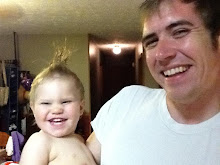-In Kerala, we drink hot water and shower in cold.
-There is a skeleton in my closet. No, really, in my classroom at the nursing school there is a full human skeleton in a cabinet.
-If I said “There is a skeleton in my closet” here, people would think there was a skeleton in the toilet, their use of the word “closet.”
-For Dad, the word “film” here is truly thought to be “filim,” so you have many millions backing you up.
-We are entering into the winter season here, and people are gearing up for it with sweatshirts and sweaters. For 70-75 degrees Fahrenheit.
-I am pretty sure I was proposed to the other day by one of the ammachees.
-I know my posterior was pinched by another ammachee.
-The Malayalam for “crow” is kaka. The other day a crow pooped on my hand. So, I had kaka kaka on me. To take it further, the word for “hand” is kai. I had kaka kaka on my kai.
-When water runs out here, it is a major problem. Wiping is fully a bidet system.
-I teach conversational English to the first year nursing students here. The only handout I have given them so far is the lyrics for What A Friend We Have In Jesus. Unfortunately, I entitled the song What a FRIED we have in Jesus on the handout. That is great for the supposed master of English. I will use it as a segue into talking about fried chicken and bananas.
-You know the roll the hoop with a stick game that you would think of for pioneer times or while visiting Conner Prairie? I played the other day at a boys’ home here with old, flat bicycle tires. Those boys were masters, going up and down hills without the tires collapsing in on themselves. This guy was not a master. I think I only managed to get 4 or 5 revolutions in before it toppled to the ground. Still, I never thought the hoop roll could be so much fun!
-We just completed a retreat at Thomas John’s house. We wake up and begin our evening relaxation to the sound of Muslim prayer being amplified throughout the surrounding neighborhood. It is hauntingly beautiful music.
-Sometimes before the evening prayer, there is wildly rhythmic percussion emanating out of a nearby Hindu temple. When it happens to coincide with the Muslim prayer, we get a veritable concert of true religious devotion.
-There is a pickled item at each meal, which has become my favorite part of dining here. Variations include: lemon pickle, lime pickle, garlic pickle, mango pickle, gooseberry pickle, puli pickle (a vegetable grown at Mandiram), and a new one as of today—banana pickle. Now these pickles don’t taste like our vinegar based cucumber pickles at home, but they follow the same concept of sourness with a mix of spices. They sound horrible, but I have grown to love them.
-We just got to try out the local fishing method, which consists of giant nets tied to an impressive wooden structure controlled by a pulley system of ropes and rock weights. We didn’t catch anything but the smiles of the onlookers as we yanked on the ropes. I’m okay with that.
-I live with over a hundred grandparents and 13 younger sisters.
-I am in
We YAVs joke around that sometimes we have to remind ourselves how novel and exciting our lives are here. Our way of putting it is, “Hey, remember that time we were in
I mean, holy cow! I am in
Wait a minute, I actually saw many holy cows today…

